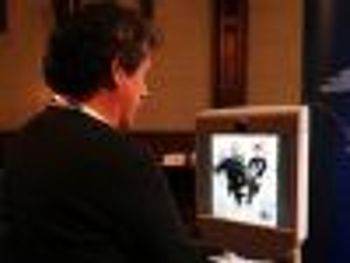
With 2013 coming to a close, investors have to think about tax implications for their portfolios. Yet, with many markets up significantly the practice of harvesting losses for tax purposes could be curtailed.

With 2013 coming to a close, investors have to think about tax implications for their portfolios. Yet, with many markets up significantly the practice of harvesting losses for tax purposes could be curtailed.

The beginning of a new year isn't just the time to make resolutions and financial changes preparations - it's time to start planning what vacations to take in 2014.

No one can predict exactly how stocks will perform next year, but if you follow these four pieces of investing advice, then you could see higher returns in 2014.

Panelists discuss compensation changes in health care organizations as the industry looks at longer term, population health management philosophies.

Even though no one can know how equities will perform next year, it won't stop investment professionals from speculating about the opportunities to take advantage of and the risks to beware of.

Let it never be said that Physician's Money Digest doesn't follow its own advice to spend time at the end of the year to look back and reflect. Here are the articles from 2013 that had the most traffic.

By determining how much risk is appropriate in your portfolio you are taking steps that will help you guard against panic and regret during the next bear market.

It is natural and traditional to look back at the end of the year to review what we have done, possibly learned and, hopefully, do something differently in the coming year to our profit.

Physicians have a lot of concerns on their minds right now, and even as new issues popped up in 2013, some of the previous year's problems still haven't been addressed fully.

As the New Year approaches, it is good to reflect on 2013 and prepare for 2014. Here are 10 items to review within your financial strategy as the year wraps up.

The many cutting edge companies that were present at FutureMed in San Diego and what they paint for the future of medicine for both physicians and patients.

Whether you're years from retirement or planning for it now, these three New Year's resolutions will be the best you ever made to ensure you can continue to live the lifestyle you want.

Medical apps are one of the fastest growing sectors in the app market, and a new responsibility arising is management of transparency and conflict of interest issues surrounding these apps.

The secret to growing rich and the laws of success as created by someone who spent two decades studying and observing successful Americans. Are you falling short?

Our panelists discuss how both the industry and patients need to drive change to a better understanding of costs of care and what it takes to get patients interested.

Creating an atmosphere of collaboration among medical practice staff can challenging, but it's necessary in order to produce a strong customer satisfaction experience.

Last week Forbes came out with its 2014 Investment Guide, but not all of it was good advice. In fact, some of it was dreadful, according to Investment U.

While GlaxoSmithKline recently decided to stop paying doctors to advocate its drugs, it's possible that drug groups could be tempted to reproduce those murky practices in vulnerable emerging markets.

America has had a history of people avoiding financial discussions regarding health care, but it's more important than ever to start having those conversations, according to panelists.

Now's the time to reduce risk and bring your portfolio in line with your long-term asset allocation. But selling without a tax strategy could result in higher taxes than necessary.

The best way to save is not to spend, of course. But failing that, it really helps if we don't unthinkingly let money slip through our fingers like sand on a beach.

The importance of holding costs of care conversations with patients, especially as more Americans are on high deductible plans, and the difficulty of even knowing how much treatment will cost ahead of time.

There are many reasons for disparate approaches to the distribution of money, and we are just beginning to understand them, but revisiting charitable giving during the holidays when the stock market is high has benefits.

One of the significant downsides of being an employee of a large institution is that you have virtually no control of the tax-saving retirement plans, benefit plans, fringe benefit plans or other write-offs.

While enrollment in consumer-driven and high-deductible health plans grew slowly in 2013, these individuals proved to be more cost conscious than those in traditional plans.

The vast majority of investors never actually reach "adulthood." To do so is a process you must go through if you wish to meet your financial goals.

Vacancy rates for both nurses and physicians are on the rise, and hospital executives have reported that access to care is compromised in their area because of physician shortages.

We are just days away from closing the books on a very good year for the stock market. While the broad consensus is for the trend to continue in 2014, realities make it seem like next year will actually be tougher.

Any retirement planning should begin sooner rather than later, as time is not forgiving for those who wait. The earlier you start saving the more opportunity you have to build a portfolio of growing assets and peace of mind.

As the year comes to a close, what companies had the biggest market stories of 2013? Google was able to pick out which ones were the biggest trending topics, some because they saw success, but others because of sharp failures.